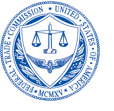Government Imposter Scams
Scammers sometimes impersonate government officials to get you to send them money. They often claim you’ve won a lottery or sweepstakes. But to get your prize, you must pay “taxes,” “fees,” or “insurance.”
No federal government agency or legitimate sweepstakes company will contact you to ask for money. And no matter what, if you have to pay, it’s not a prize.
How to Recognize an Imposter
You get a call from someone claiming to be a government official, informing you that you’ve won a federally supervised lottery or sweepstakes. They may say they’re from “the national consumer protection agency,” the non-existent National Sweepstakes Bureau, or even the Federal Trade Commission – and it looks like they’re calling from a legitimate number.
They tell you that you’ll have to pay a fee in order to collect your winnings, to cover things like taxes or service charges. You may be asked to send money to an agent of “Lloyd’s of London” or some other well-known insurance company to “insure” delivery of the prize. And you’ll be asked to wire money right away, often to a foreign country.
To make their call seem legitimate, scammers use internet technology to disguise their area code. It may appear that they’re calling from Washington, DC, but they could be calling from anywhere in the world. They also might send e-mails, text messages, and letters.
In reality, no government agency or insurance company is involved, and there are no winnings. Scammers take the money you paid in fees and disappear.
"Winning" a Lottery or Sweepstakes
The lure of a sweepstakes prize is powerful. If you’re contacted by someone claiming to be a government official asking you to pay money to collect your “winnings,” remember:
- Don’t pay for a prize. Legitimate sweepstakes don’t require you to pay insurance, taxes, or shipping charges to collect your prize. And companies, including Lloyd’s of London, don’t insure delivery of sweepstakes winnings.
- Did you enter a sweepstakes or lottery? You can't win a prize in a sweepstakes you didn't enter. And keep in mind, it's illegal to play a foreign lottery.
- Con artists use official-sounding names to make you trust them. It’s illegal for any promoter to lie about an affiliation with — or an endorsement by — a government agency or any other well-known organization. No matter how convincing their story — or their stationary — they're lying. No legitimate government official will ask you to send money to collect a prize.
- Don’t wire money. Scammers often pressure people into wiring money. That's because wiring money is like sending cash: once it’s gone, you can’t trace it or get it back. Never deposit a “winnings” check and wire money back. The check will turn out to be a fake and you will owe the bank any money you withdrew. Resist any requests to tell your account information, or to send a check or money order by overnight delivery or courier. Con artists recommend these services so they can get your money before you realize you’ve been cheated.
- Put your number on the National Do Not Call Registry. If you want to reduce the number of legitimate telemarketing calls you get, register your phone number at donotcall.gov. Generally, scammers don't respect the Registry — or pay to scrub their lists against it.
Report the Scam
If you get a call from a government imposter claiming you’ve won a prize, file a complaint at ftc.gov/complaint. Be sure to include:
- Date and time of the call
- Name of the government agency the imposter used
- Prize amount, amount requested in fees, and payment method
- Phone number of the caller; although scammers may use technology to create a fake number or spoof a real one, law enforcers may be able to track that number to identify the caller
- Any other details from the call




